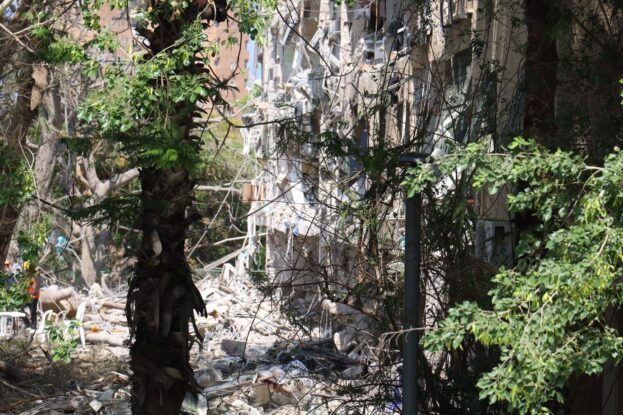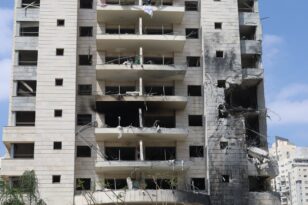As missiles damaged homes across Israel, thousands of families were forced to evacuate, leaving behind not only personal belongings but also growing financial uncertainty. Israel’s Tax Authority has published new guidelines outlining who qualifies for alternative housing compensation — and who doesn’t. Homeowners and tenants may receive state-funded support for temporary or long-term housing, but property investors who weren’t living in the damaged property will not be compensated for lost rent. Here’s what every owner, tenant, and landlord needs to understand as the country begins to rebuild.
In the aftermath of Iran’s unprecedented attack on Israel, thousands of families have been forced out of their homes — some temporarily, others indefinitely. Whether due to direct rocket damage or buildings deemed unsafe, entire neighborhoods have been emptied in cities like Tel Aviv, Bat Yam, Beer Sheva, and communities across the country. For those affected, one of the most urgent questions is: What happens now? Where do I live? And who is paying for it? Yesterday, Israel’s Tax Authority released an official guide explaining the rights of evacuees:
If a home was directly damaged by rocket fire or officially declared uninhabitable by the authorities, residents are entitled to immediate, short-term housing. For those whose homes cannot be lived in for an extended period, the guide also offers long-term housing solutions. But as always, the details matter—and they’re not always simple. Here’s what you need to know:
Temporary Housing for the First Two Weeks
Residents whose homes were directly damaged by rocket fire or officially declared uninhabitable by the authorities are entitled to immediate, short-term housing. This applies to both property owners and tenants. There are two available options:
- Evacuation to Hotel or Guest Apartment – Accommodation is arranged by the local municipality and funded by Israel’s Compensation Fund.
- Self-Relocation – Those who choose to stay with family, friends, or arrange their own housing are entitled to a one-time payment of 4,000 NIS, covering up to two weeks.
This initial stage is designed to provide rapid, temporary housing solutions. After the first two weeks, long-term housing policies come into effect.
Long-Term Housing if Returning Home Is Not Possible
When a home, whether owned or rented, remains uninhabitable beyond the initial two-week period, a longer-term housing solution is required. There are two primary options, each subject to different conditions.
The first option is to rent a replacement apartment. The state covers the rent based on the characteristics of the damaged property, including its size, location, and features, with a preference for maintaining residence in the same area.
The second option is self-relocation, where the affected residents stay with relatives or friends. In this case, the structure of financial support differs.
For homeowners, monthly compensation is calculated based on household size:
- NIS 4,000 per month for a single adult or NIS 5,000 per month for a couple or single parent
- Plus NIS 500 per month for each child under 18
- Plus NIS 1,000 per month for each additional adult living in the household
- Total compensation cannot exceed 80% of the fair market rent for a similar apartment in the same area
For tenants, self-relocation compensation equals the amount of rent they were paying for the damaged apartment.
It is important to note that tenants remain eligible for rent reimbursement or self-relocation compensation only if rent payments for the damaged property continue, under the terms of the existing lease. In other words, even if the property is uninhabitable, ongoing rent payments to the landlord are required to qualify for state assistance.
Landlords and Vacant Properties Are Not Covered
Property owners whose homes were damaged but were not residing in them at the time — such as in the case of investment properties or vacation homes — are not entitled to compensation for alternative housing or rent reimbursement. Eligibility for support applies only to residents who were living in the property at the time of the damage.
Duration of Housing Assistance
State-funded housing assistance continues until the damaged property is officially declared fit for habitation. Once that determination is made, eligibility for support ends. The decision regarding when a property is considered livable is made by the Compensation Fund.
Extra Costs: Moving and Brokerage Fees
For both short-term and long-term housing solutions, moving expenses and brokerage fees are also reimbursed by the Compensation Fund, provided valid receipts are submitted.
The Application Process Explained
Applications must be submitted through the Israel Tax Authority website. Eligibility for assistance and reimbursements depends on confirmation of the damage by the Compensation Fund and/or the local municipality. Once verified, claims are processed through the Compensation Fund system.
The required documents vary based on whether the applicant is a homeowner or tenant, and whether they are renting a replacement apartment or self-relocating:
- Copy of the lease for the damaged property
- Lease for the replacement apartment
- Signed declaration confirming that rent continues to be paid for the damaged property
- Declaration stating how many people lived in the damaged property, along with the address, size, and number of rooms
- Proof of ownership (for homeowners), such as a property deed or Arnona (municipal tax) statement
- Bank account details for transferring the approved payments
- Valid identification documents
- Receipts for moving or brokerage expenses
What It Means for Owners, Renters, and Investors Moving Forward
Israel’s housing crisis was complicated long before the Iran war. Now, thousands of families are displaced, and the guidelines for compensation highlight gaps in the system. For Anglos, navigating the process can be especially challenging due to language barriers and unfamiliar bureaucracy.
In uncertain times, understanding your options is the first step toward rebuilding stability — whether it’s securing temporary housing, navigating long-term solutions, or planning your next move in Israel’s complex property market. At Buyitinisrael, we will continue reporting on developments that impact homeowners, landlords, and families affected by the war.
The Buyitinisrael Editorial team is made up of industry experts, journalists, researchers, editors, and translators working together to deliver reliable, up-to-date information about the Israeli property market — all in English. With a strong focus on transparency and accessibility, our goal is to empower English-speaking buyers by helping them understand the market and navigate the real estate process with clarity and confidence.
For inquiries, email info@buyitinisrael.com.


